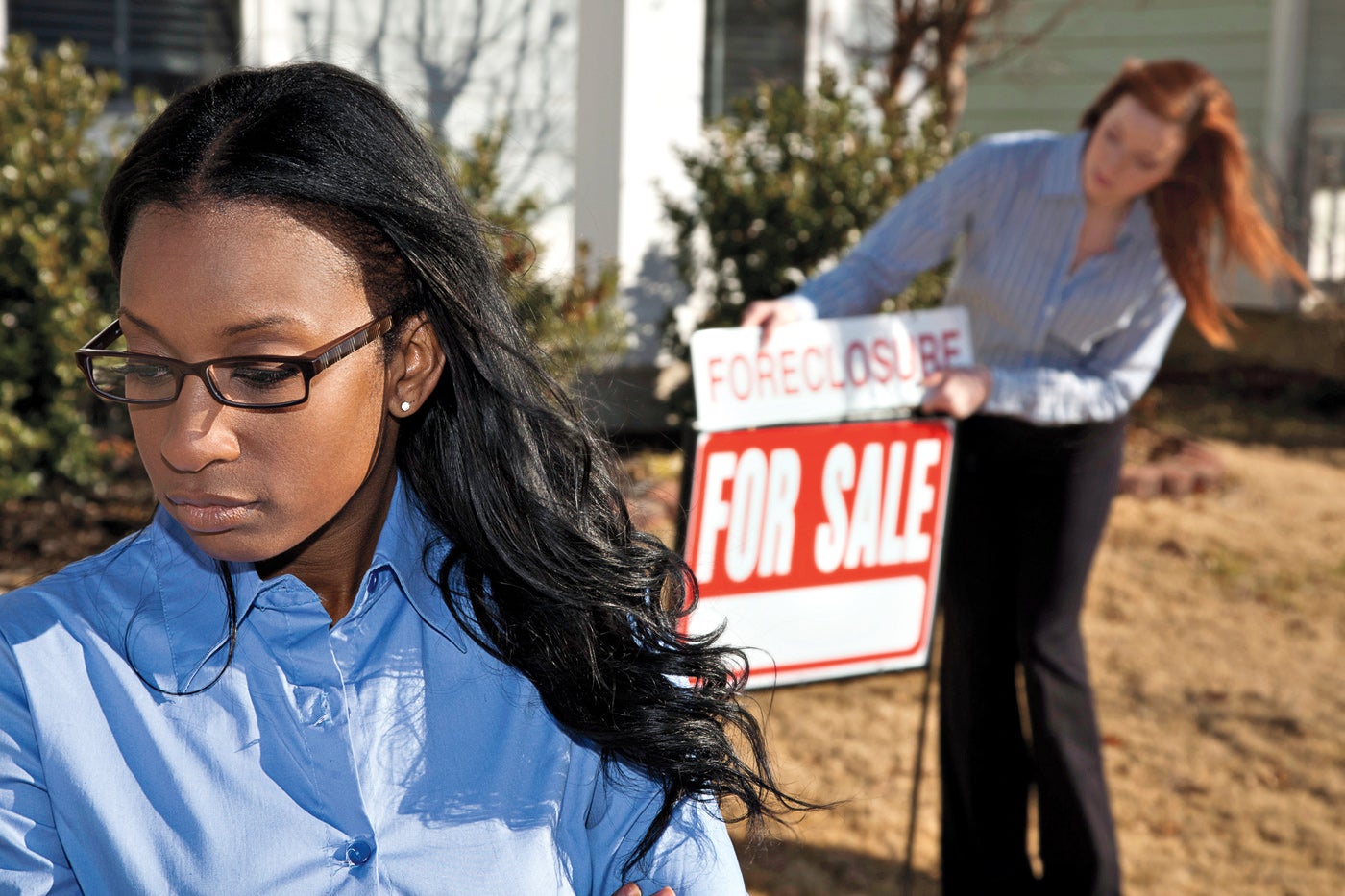
The past two decades have seen stunning growth for African-American women-owned businesses. In 1997, less than 1 million firms were owned by women of color, according to The 2013 State of Women-Owned Businesses Report, commissioned by American Express OPEN. But just last year, Black women alone owned more than 1.1 million of the 2.7 million firms helmed by minority women.
Great news, right? Technically, that is, until you consider that the 2008 housing crisis, which sent the economy reeling into a recession, hit Black businesses especially hard. According to The State of Housing in Black America, a study conducted by the National Association of Real Estate Brokers, more than half of Black wealth was lost due to home foreclosures and job losses. “For Black families, homes account for 59 percent of their net worth, compared with 44 percent for their White counterparts,” says Ron Busby, president of the U.S. Black Chambers, Inc. The massive amount of foreclosures has hindered Black entrepreneurs’ ability to grow their businesses or start new ones, since the foreclosures negatively affected their credit and their capacity to secure business loans.
When it comes to business, scale is crucial to success. Most companies in the U.S. have no employees, and they account for less than 4 percent of all sales and receipts nationally, according to the U.S. Census Bureau. Some 1.8 million of the nation’s nearly 2 million Black-owned businesses are sole proprietorships—demonstrating a dire need for expansion, asserts Busby. With limited access to small-business loans, these companies are unable to hire additional workers. This past March, The Wall Street Journal reported that $23 billion in loans was made to small businesses in 2013. Black-owned firms received just 1.7 percent of those loans. (For reference, in 2008 Black firms got 8.2 percent of small-business loans.) The Journal’s report asserted that the reason Black firms have gotten fewer dollars from banks is directly tied to the housing crisis foreclosures and subsequent plummeting of business owners’ credit scores. Contacted for an explanation on the loan disbursement disparity, the U.S. Small Business Administration, a federal agency designed to protect small businesses by delivering assistance, often in the form of loans, hadn’t responded by press time. Forced to stay small, some Black companies are finding that amassing wealth is becoming virtually impossible.
Still, faced with a steep unemployment rate (11.6 percent for African-Americans as of April 2014, says the Bureau of Labor Statistics), many Black people see going into business themselves as a way to proactively remedy their economic situations, says William Spriggs, the former chair of the department of economics at Howard University. One such example is Carolyn Bryant, a 51-year-old former journalist who was working as a lab technician at a Texas prison in 2012 when she lost her job. To avoid foreclosure on her home, she filed for bankruptcy and applied for a loan modification on her mortgage. But when Bryant tried to generate her own income by launching a food truck business, she recalls, “Everywhere I turned, the answer was ‘no’ because of my credit score.”
Deborah Owens, financial expert and author of A Purse of Your Own: An Easy Guide to Financial Security, warns, “As a business owner, your ability to borrow is impacted directly by your personal credit, particularly if you are a start-up.” As an alternative to traditional business loans, Owens suggests fund-raising through crowdsourcing sites like kickstarter.com and gofundme.com, which allow anyone to raise money from the general public. “[Black people] didn’t get a bailout and had to innovate to start a business,” she says. Let us hope that innovation will lead to increased success for Black-owned companies.
Roland S. Martin is host of TV One’s daily morning show, NewsOne Now. Follow him on Twitter @rolandsmartin or visit rolandsmartin.com.
This article was featured in the July issue of ESSENCE, on stands now.
